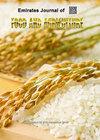全球变暖对农业的影响:利用基于回归的预测在气候变化中实现可持续生产的战略
IF 0.7
4区 农林科学
Q3 AGRONOMY
引用次数: 0
摘要
气候变化与粮食生产的交汇点正成为一个重要的研究领域,其重点是不断变化的气候条件所带来的潜在益处和重大挑战。随着全球气温的升高,二氧化碳水平也随之升高,从理论上讲,这可以提高作物产量,有利于人类和动物的消费。本研究探讨了各种气候变量--温度、湿度、降水量和土壤湿度--对稻米、小麦、牲畜、牛奶、鸡蛋、蔬菜和水果等基本食品初级生产的影响。本研究利用世界发展指标中不同国家从 2000 年到 2020 年的数据,采用计量经济学分析和基于深度学习的聚类分析。此外,研究还利用移动平均时间序列预测法预测了 2100 年前的未来生产趋势。研究结果表明,气候变量与蔬菜和其他食品的生产水平直接相关,凸显了气候变化对农业的直接影响。研究还指出,这些气候影响分布不均,发展中国家由于资源和适应能力有限,面临的挑战更为严峻。这种不均衡的影响增加了粮食供应的不确定性,影响了市场稳定。此外,在气候变化的影响下,对食品安全的担忧也在加剧,尽管一些地区已经实施了有效的食品保护和控制措施来降低这些风险。这项研究强调了一个复杂的情况,即气候变化给粮食生产带来的风险和收益并不是均匀分布的,而是受地理位置、经济条件和食品安全实践中的技术进步水平等众多因素的影响。细致入微地了解这些动态变化,对于制定有针对性的战略,在气候不断变化的情况下加强粮食安全至关重要。本文章由计算机程序翻译,如有差异,请以英文原文为准。
Global warming’s grip on agriculture: Strategies for sustainable production amidst climate change using regression based prediction
The intersection of climate change and food production is emerging as a critical area of research, focusing on both the potential benefits and the significant challenges posed by changing climate conditions. Elevated levels of carbon dioxide alongside rising global temperatures could theoretically boost crop yields, benefiting both human and animal consumption. This study examines the impact of various climate variables—temperature, humidity, precipitation, and soil moisture—on the primary production of essential foods such as rice, wheat, livestock, milk, eggs, vegetables, and fruits. Utilizing data from different countries spanning from 2000 to 2020, drawn from world development indicators, this research employs econometric analysis coupled with deep learning-based cluster analysis. Additionally, it projects future production trends up to 2100 using the moving average time series forecasting method. The findings reveal a direct correlation between climate variables and the production levels of vegetables and other food items, highlighting the immediate effects of climatic changes on agriculture. The study also points out the uneven distribution of these climate impacts, with developing countries facing more severe challenges due to their limited resources and adaptive capacities. This uneven impact contributes to increased uncertainty in food supply and affects market stability. Furthermore, concerns about food safety are intensifying under the influence of climate change, although some regions have implemented effective food conservation and control measures to mitigate these risks. This research underscores a complex landscape where the risks and benefits of climate change on food production are not uniformly distributed, but rather are influenced by a myriad of factors including geographic location, economic conditions, and the level of technological advancement in food safety practices. The nuanced understanding of these dynamics is crucial for developing targeted strategies to enhance food security in the face of a changing climate.
求助全文
通过发布文献求助,成功后即可免费获取论文全文。
去求助
来源期刊

Emirates Journal of Food and Agriculture
AGRONOMYFOOD SCIENCE & TECHNOLOGY&nb-FOOD SCIENCE & TECHNOLOGY
CiteScore
1.80
自引率
0.00%
发文量
18
期刊介绍:
The "Emirates Journal of Food and Agriculture [EJFA]" is a unique, peer-reviewed Journal of Food and Agriculture publishing basic and applied research articles in the field of agricultural and food sciences by the College of Food and Agriculture, United Arab Emirates University, United Arab Emirates.
 求助内容:
求助内容: 应助结果提醒方式:
应助结果提醒方式:


